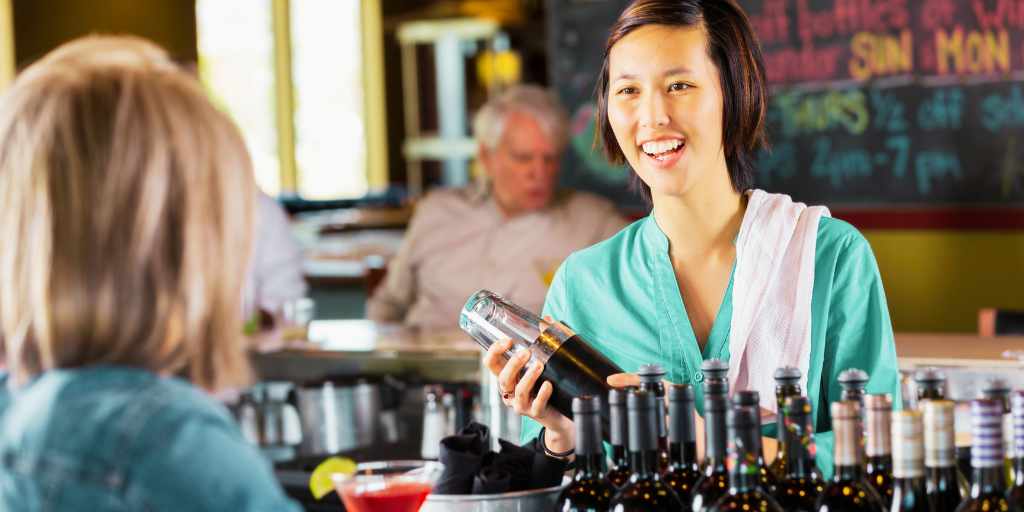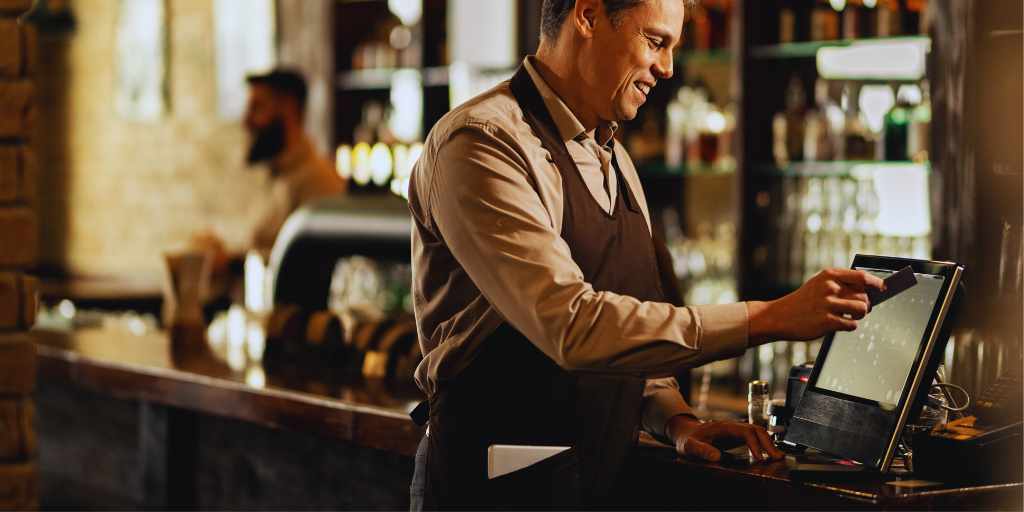Becoming a professional bartender often begins with a course that can equip aspiring bartenders with the necessary skills and knowledge. Bartender courses vary in duration, typically from a few days to several weeks. They are designed to provide comprehensive training that covers everything from the basics of mixology and bar equipment to customer service and local alcohol laws. Factors such as the depth of the curriculum and the learning format—whether online, in-person, or a blend of both—can influence the length of a bartender course.
Key Takeaways
- Bartender courses offer essential training for mixology and customer service.
- Course length varies and can be influenced by curriculum depth and learning format.
- Hands-on training in real-world settings is a crucial part of bartender education.
The curriculum of a bartender course includes practical skills like mixing drinks, as well as theoretical knowledge such as responsible alcohol service. There is also an emphasis on real-world application, with many courses online bartending school offering hands-on training behind an actual bar. This allows students to gain experience in a controlled environment before moving on to employment. Moreover, the course length may also depend on whether one attends a dedicated bartending school or opts for modules offered at culinary institutes or community colleges. Individuals must choose a training program that aligns with their career goals and schedule.
Duration of Bartender Courses
The length of bartender courses can vary, depending on whether a prospective bartender chooses a short-term program or seeks comprehensive certification.
Short-Term Programs
Short-term bartender programs are typically designed for rapid learning, often taking two to four weeks to complete. These programs may feature intensive, daily classes covering bartending basics. Students should expect a full-time commitment to complete such courses within a week in the shortest time frame.
Comprehensive Certifications
In contrast, comprehensive certifications provide a more in-depth understanding of bartending. These courses might range from 40 hours to 2 months of instruction. They may include detailed studies on various types of alcoholic beverages, customer service, and mixology techniques. The structured timetable can accommodate both full-time and part-time students, with the pace of the course affecting its duration.
Curriculum Overview
A bartender course is structured to equip aspiring bartenders with the skills and knowledge necessary for their profession. This includes mastering drink recipes, understanding bar equipment, and learning how to provide excellent customer service.
Mixology Fundamentals
In this section, students learn about the art and, while attending bartending school, the science of mixing drinks. Training typically covers a range of topics, from learning classic cocktail recipes to understanding the flavour profiles of different spirits. They also practice pouring techniques and learn how to use various bartending tools to create a diverse menu of beverages.
Customer Service Skills
Exceptional customer service is crucial in bartending. Courses focus on teaching students how to engage with customers, manage challenging situations, and create a welcoming environment. Students are trained in communication skills and conflict resolution and are often given tips on upselling and serving up cocktails responsibly.
Health and Safety Regulations
Bartending students must be aware of the health and safety standards that govern the industry. This includes responsible alcohol service, understanding state and local laws related to serving alcoholic beverages, and learning how to maintain a clean and safe working environment. Students in bartending school also study the importance of hygiene in the workplace and how to prevent cross-contamination.
Types of Bartending Schools
When considering a career in mixology, prospective students choose between two primary education paths: online courses and in-person training. Both formats cater to different learning preferences and schedules.
Online Learning Platforms
Online bartending courses offer the flexibility to learn at one’s own pace, making it convenient for individuals with varying schedules. For example, ABarAbove Mixology Masterclass is structured for those who prefer self-directed study. These platforms typically range from several hours to a few weeks, with class schedules often accommodating even the busiest learners.
Local Bartending Classes
Local bartending schools provide hands-on experience and direct instructor feedback, which can be invaluable for mastering practical skills. A typical in-person course may run for a few weeks, with options for flexible class schedules ranging from intensive daily sessions to weekly classes. This face-to-face training is particularly beneficial for those seeking immediate entry into the bartending profession.
Frequently Asked Questions

Becoming a bartender involves various steps, including coursework duration, certification, job placement, and hands-on experience. Prospective bartenders often have questions on how to navigate these steps effectively.
What is the typical duration required to complete a bartending course?
A full bartending certificate course can vary significantly in length, but most comprehensive courses recommend around 40 hours of study and practice to grasp the essentials.
Is the process of becoming a bartender challenging?
The process can be demanding, involving both learning and physical skills. However, for those passionate about bartending, the complexities add to the rewarding nature of the profession.
What if I don’t have practical bartending experience?
Many schools assert that advanced bartending skills are best acquired through on-the-job experience, suggesting that formal education in school is just a starting point.
What steps are needed to become a certified bartender in New York?
In New York, bartending certification usually involves completing a bartending course and obtaining an alcohol handling certificate, which are requirements to serve alcohol legally.
Which bartending course is recommended for aspiring bartenders?
Aspiring bartenders should seek out courses from online bartending schools that cover various skills, from mixology to customer service, and also look for post-course support programs.
What is the difference between a bartending license and certification?
The terminology may vary, but typically, a bartending license refers to legal permission to serve alcohol, whereas certification often implies completion of formal bartending education.
How much can I expect to pay for a reputable bartending course in NYC?
Course costs fluctuate based on reputation and course depth, ranging from a few hundred to a thousand dollars per class, particularly for well-regarded programs in metropolitan areas like New York City.
Can a bartending license be used in other states?
Licensing requirements differ across state lines, and a bartending license from one state may not be recognized as a bartender license in another, necessitating further certification or training.
In the US, most states either have a state-wide certificate (though in some states, individual cities, or counties have stricter requirements) or require bartenders to take some nationally recognized responsible service training.
We have a complete list of states and their license requirements here.




